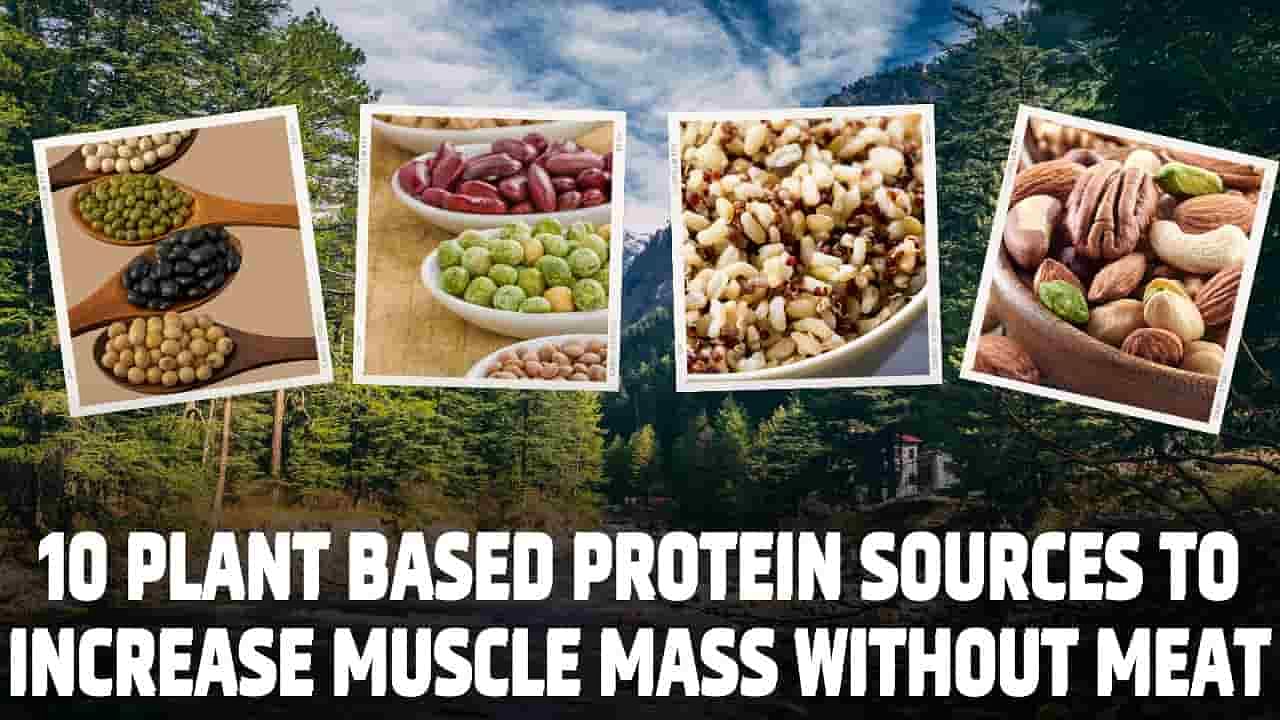10 plant based protein sources to increase muscle mass without meat
न्यूज हाइलाइट्स

Ten plant-based protein-rich meals || Adopting a plant-based diet doesn’t have to impede the development of muscle mass. The idea that eating meat is the only way to gain muscle is being debunked as more sportsmen and fitness enthusiasts turn to plant-based diets. These ten excellent plant-based protein sources will help you build muscle, improve your ability to recover from injuries, and get more out of your workouts:
Legumes: Peas, beans, and lentils
With 15 to 25 grams of protein per cooked cup, legumes are an incredible source of protein. They’re an ideal post-workout meal component for muscle regeneration and recovery since they’re also high in iron and fiber.
Quinoa
“Unlike most plant-based foods, quinoa is a complete protein, meaning it contains all nine essential amino acids,” explains Dr. Archana Batra, a dietitian and Certified Diabetes Educator. It’s a great alternative to rice or pasta since each cup has 8 grams of protein.
Seeds and nuts
Nutritious gems, almonds, chia seeds, flaxseeds, and hemp seeds provide an excellent balance of fiber, healthy fats, and protein. With 10–15 grams of protein per ounce, they are great snacking or meal complements.
dietary yeast
This cheesy-flavored sauce has around 14 grams of protein per ounce. Additionally, it’s a fantastic source of B vitamins, particularly B12, which is sometimes lacking in vegan diets.
Spirulina
Though it may not be the first meal that springs to mind when thinking about protein, this blue-green algae is highly powerful, providing a healthy dose of antioxidants and roughly 8 grams of protein in just two tablespoons.
Whole Grains: brown rice and oats
In addition to being excellent providers of complex carbohydrates, whole grains like brown rice and oats also provide a respectable amount of protein—five to seven grams per cooked cup. They are perfect for muscle repair and long-term energy.
Crisp greens
Although leafy greens like broccoli, kale, and spinach don’t have as much protein as other items on this list, they still add up, particularly when eaten in big amounts. They also provide an abundance of vitamins and minerals that improve general health and healing.
Tempeh and tofu
Products made from soy, such as tempeh and tofu, are not only rich in protein but also adaptable in the kitchen. With around 20 grams of protein in every half cup, they are a great addition to smoothies and stir-fries alike.
Seitan
Seitan, a well-liked meat alternative, is made of gluten and has around 25 grams of protein per 3.5 ounces. If you’re seeking the texture of meat, this is a great option because of its meaty texture.
Powdered plant-based protein
Plant-based protein powders produced from rice, hemp, or peas may be a great way to add extra protein to baked goods and smoothies. A serving of these powders typically contains 20-30 grams of protein.
विज्ञापन








